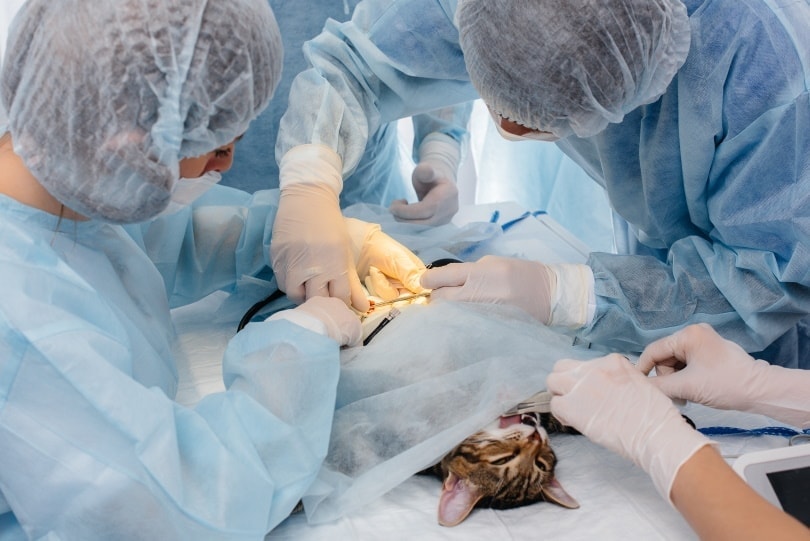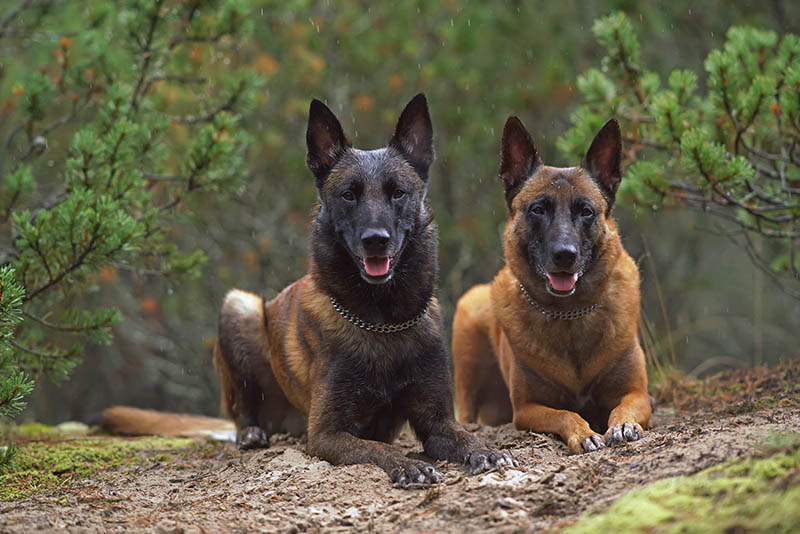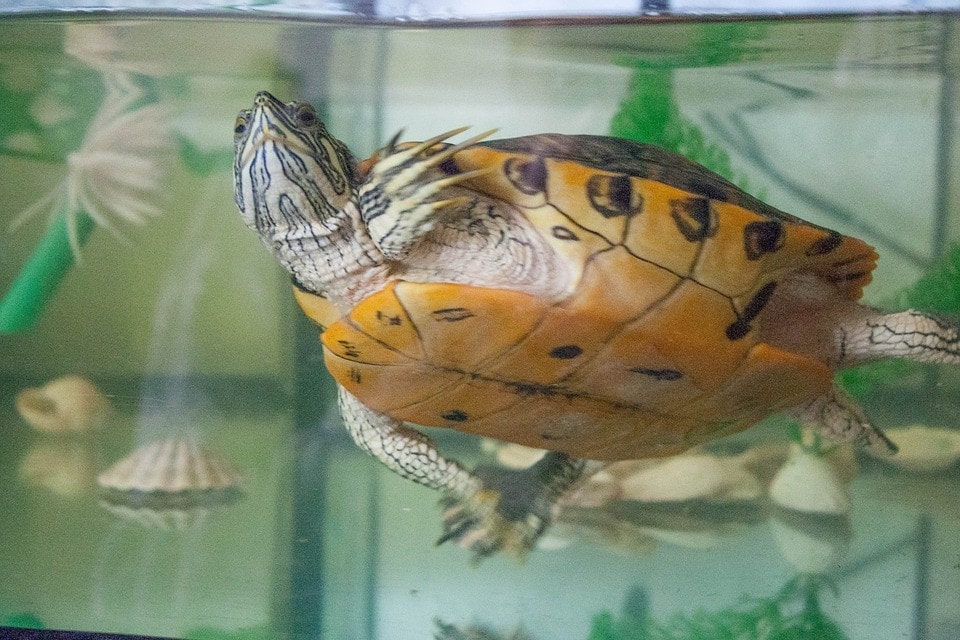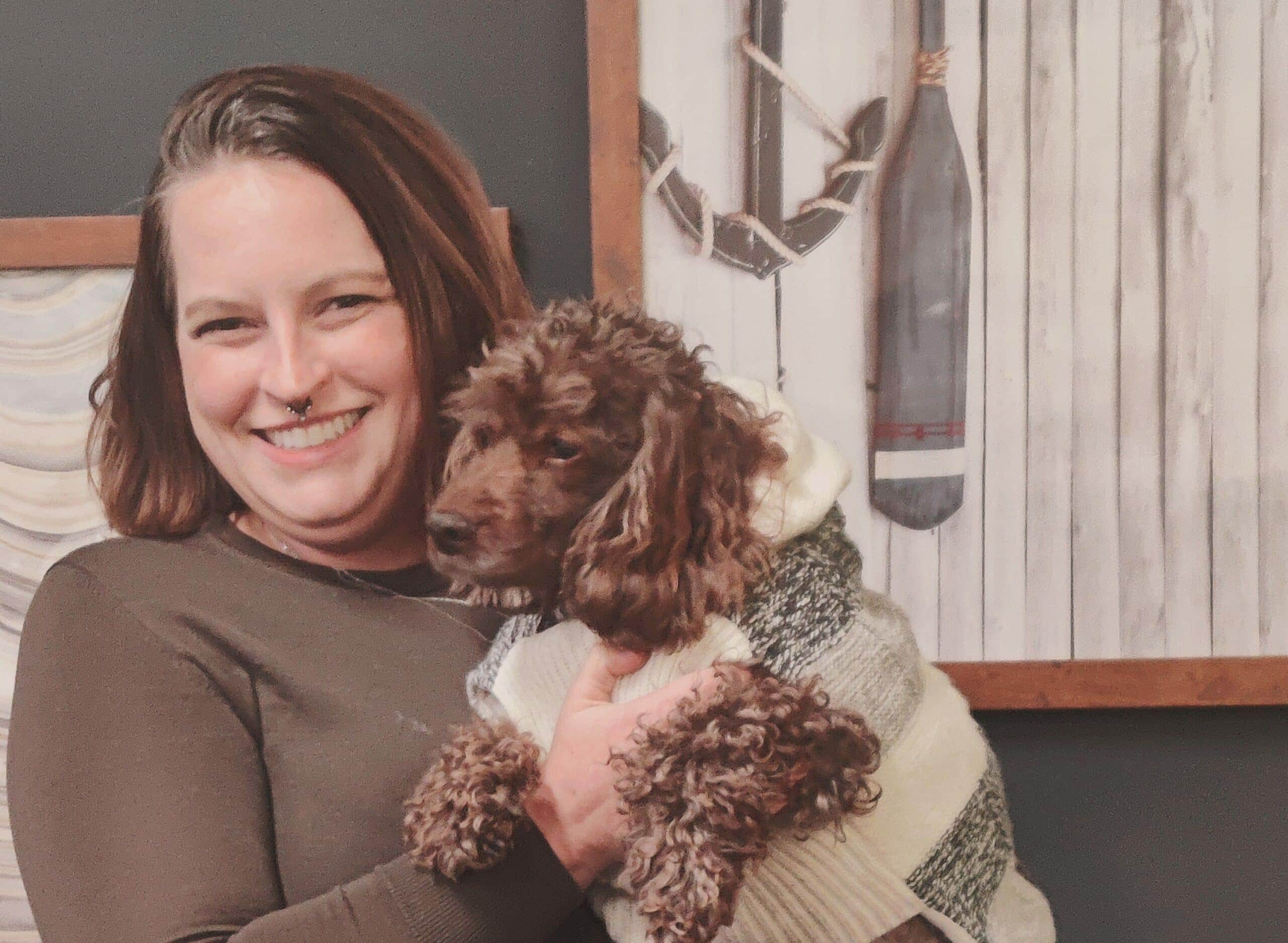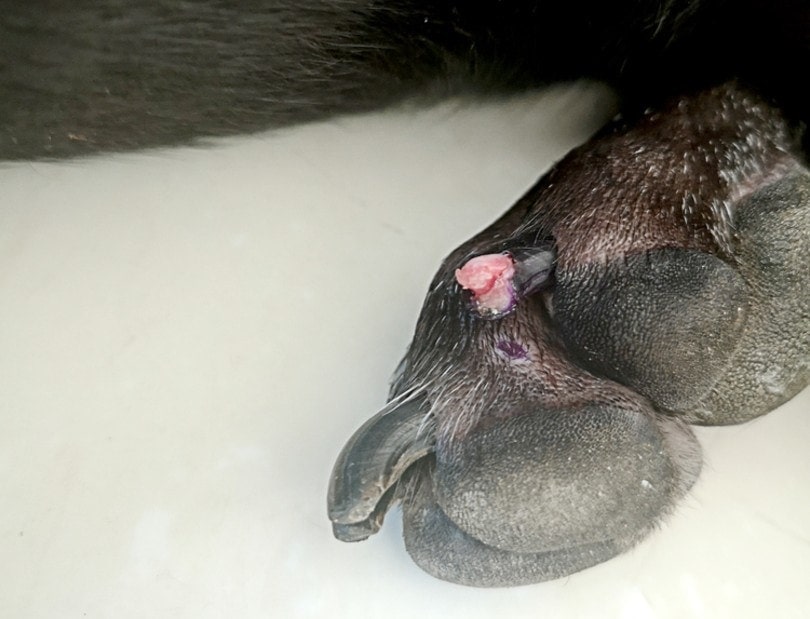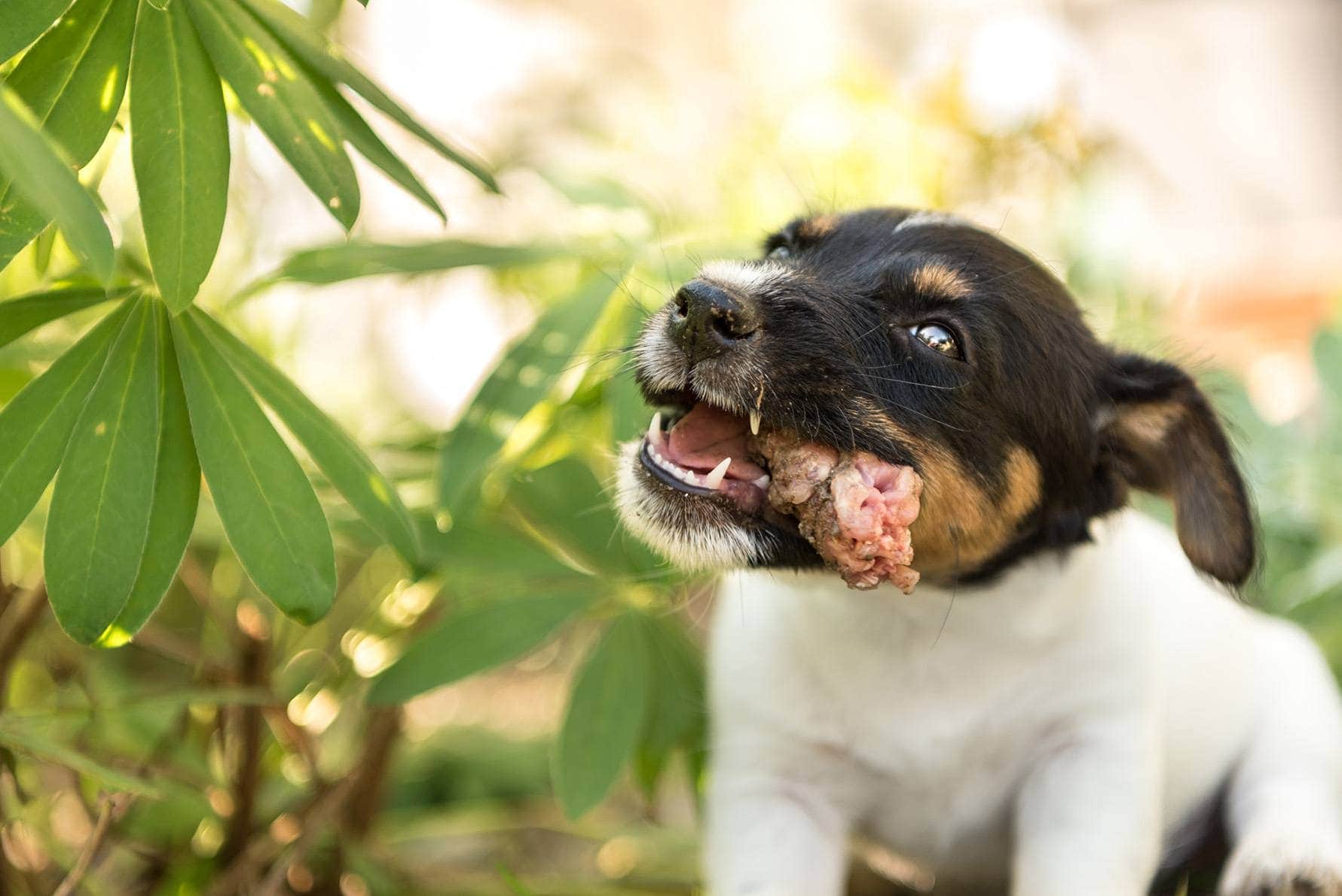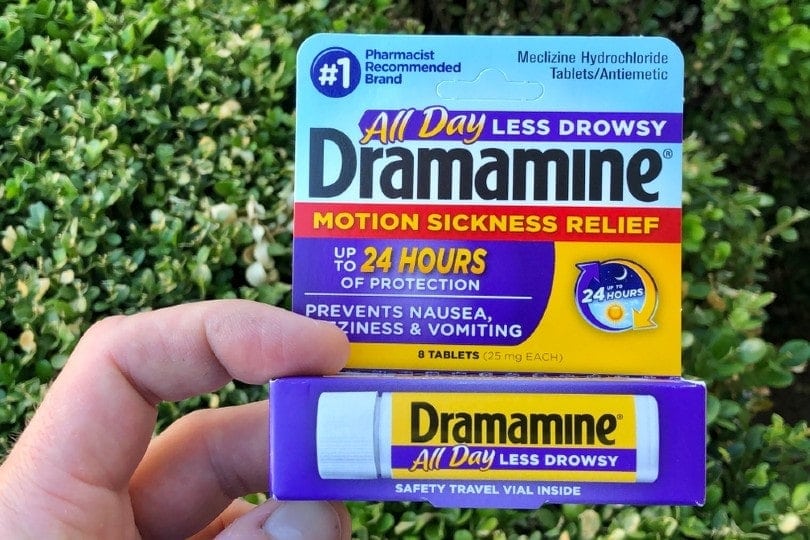Cat Acupuncture: Benefits and Effectiveness (Vet Answer)

Updated on
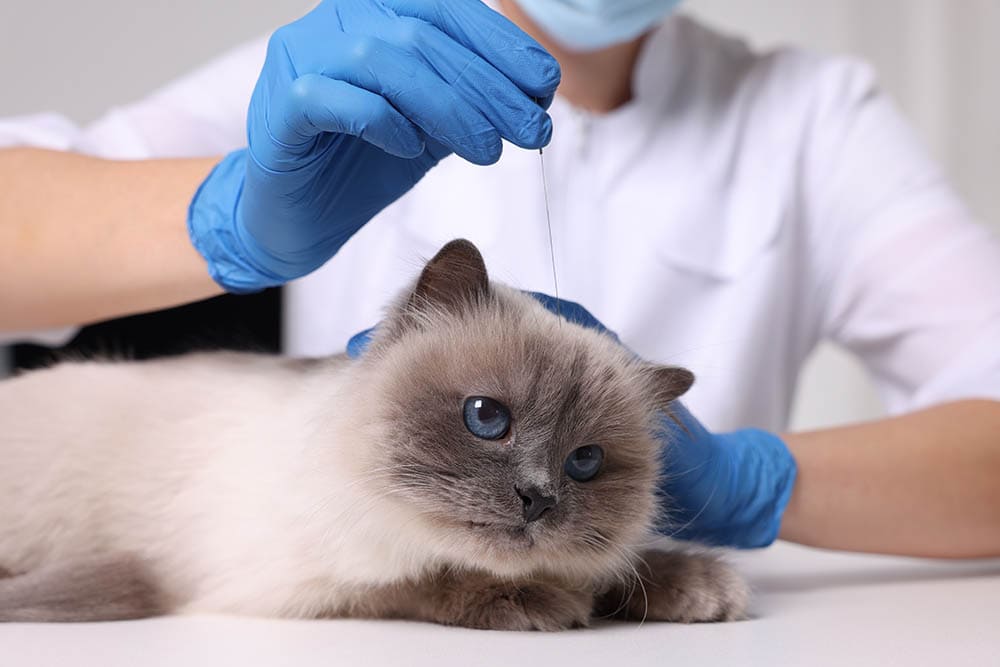
These days, it is likely that you have either experienced acupuncture at some point or know somebody who has. Back pain, tension headaches, nausea, and arthritis are just some of the many conditions where people may be advised to get treatment. However, what about your feline friend? Is it possible for him to derive the same benefits? You might be surprised to find that for lots of conditions the answer is a resounding ‘yes’.
What exactly is acupuncture?
The term ‘acupuncture’ comes from the Latin for ‘penetrating with a needle’, as it involves inserting fine, sterile metallic needles into the body. It is often viewed as a traditional Chinese medicinal technique as it has been very important in China for 2500 years. However, the first known acupuncture patient was in Western Europe 5000 years ago and today acupuncture is practiced throughout the world, making it very much a global therapy. The first veterinary acupuncture patients were horses, but the technique has evolved to include all species including, and predominantly, cats and dogs.
Traditional Chinese Medicine describes a plethora of ‘acupoints’ all over the surface of the body, which are linked to form several ‘meridians’, or ‘channels’. These channels are named after the internal organ with which they are connected, such as the bladder or spleen. By ‘needling’ certain external points on these channels, it is believed that the internal organs and body systems they are connected to can be manipulated and treated. The traditional practice revolves around changing the energy (Qi) and blood flow around the body, to correct any imbalances.

How does acupuncture work?
As well as being used in Traditional Chinese Veterinary Medicine, Western veterinary acupuncture has many well-proven applications of the treatment. One of the main uses of acupuncture is in treating painful conditions. The process of inserting acupuncture needles is not painful. However, by inserting them into an area that is sore, the same pathways that are used to tell the body that pain is occurring are stimulated. In this way, the pain pathways are ‘used up’ and pain is downregulated by the body so that the patient feels less discomfort in that area.
Stimulation by the needles also causes the body to release certain chemicals including endorphins, serotonin, and oxytocin, which are used by the body to inhibit pain. By this mechanism, pain in several areas of the body can be reduced, not just the part that has been needled.
Acupuncture also has strong anti-inflammatory effects on the body. Needling areas of the body can change the blood flow to that area. This is important because increased blood flow can improve the healing of tissues in the acute phase, shortly after injury. In chronic or long-term conditions, changing the blood flow to an area can help speed up the removal of inflammatory chemicals from a region and make the patient more comfortable. The duration of acupuncture treatment and how frequently it is administered can both be used to manipulate the blood flow changes to an area.
When could acupuncture benefit my cat?
Acupuncture in cats is often best used in combination with other therapies such as medication or diet. That said, it can sometimes be the difference between needing high doses of medications and much lower doses. There are two main scenarios where you might like to consider acupuncture for your cat:
- In an acute medical situation – As much as we wish for our pets never to get injured, sadly accidents do happen. Perhaps your cat has a nasty wound that is struggling to heal or has had to have emergency surgery. Its ability to ease pain, decrease inflammation and promote good healing can make acupuncture a great addition to your pet’s recovery plan. It is likely that your cat is either receiving hospitalized care or undergoing regular vet visits at this stage anyway, so acupuncture can often be performed alongside his existing veterinary care.
- In long-term chronic conditions – The most common of these is arthritis. Estimations vary, but it is generally accepted that 90% of cats over the age of 10 years old suffer from some degree of osteoarthritis. In cats that are overweight or have had some form of previous injury or trauma, the age of onset of arthritis could be significantly younger. Furthermore, it can be notoriously difficult to recognize or gauge pain in cats, so it is always a good idea to be proactive about their pain management and care, especially in their later years. Arthritis is, by definition, inflammation of the joint so acupuncture can be key in reducing its effects and in improving mobility and quality of life.
Although arthritic pain is the most frequently treated chronic condition of cats, acupuncture has been shown to be beneficial in the management of a whole host of other conditions including allergies, asthma, bladder issues, and epilepsy. In some more complex cases, acupuncture may be just one part of a multimodal treatment plan consisting of lots of therapies. If your pet is being treated by a Traditional Chinese Veterinary Medicine practitioner, they may prescribe various traditional or herbal veterinary remedies to complement the acupuncture and conventional medications.
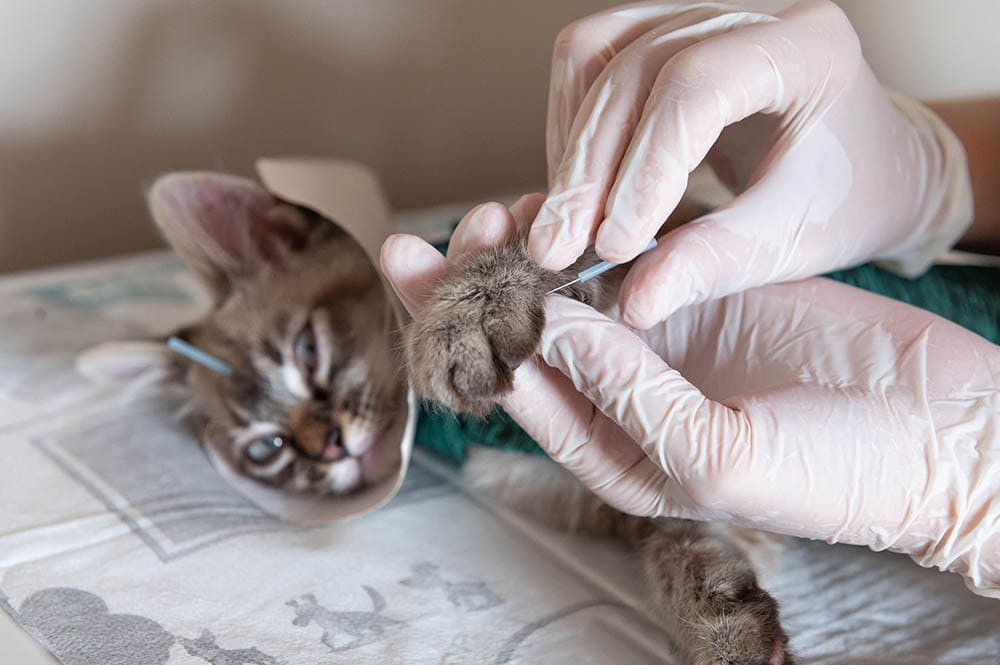
Are there any side effects?
Generally speaking, acupuncture is an incredibly safe modality of treatment. As mentioned, it is not a painful procedure so is almost always performed on a conscious patient without the need for sedation. This makes it a low-risk option for older or compromised patients who may not be a good candidate for sedation. While there is a myriad of excellent, lifesaving, and life-enhancing pharmaceutical drugs on the market, some carry certain side effects that might not make them suitable to every cat. Acupuncture can offer an alternative for these cases.
It’s likely that acupuncture will need to be performed in a clinic as opposed to at home, so you need to consider your cat’s temperament. However, most cats cope remarkably well with the procedure. Lots go into a relaxed, ‘zen-like’ state when needled correctly, and may create a positive association with their acupuncture therapy. Remember, your veterinarian will come across all types of feline personalities in the course of their work and will do all that they can to make your cat feel at ease.
How can I access acupuncture for my cat?
Lots, but not all, veterinary clinics provide an acupuncture service. The best place to start is with a conversation with your usual veterinarian. They may be able to provide treatment themselves, to refer you to a colleague within their clinic or at another facility, depending on the specific case.
Once you have connected with your acupuncture veterinarian, they will be able to advise on how often or how many sessions your cat will require. As a rough rule of thumb, acute conditions or pets that are new to acupuncture require more repetitive, higher frequency, and higher intensity treatments, perhaps one to three times per week. Treatment of chronic conditions, or cats that have already undergone an initial acupuncture course, are often treated less regularly such as weekly, biweekly, or monthly.
Your veterinarian will take into consideration how you feel your cat is doing at home, alongside their clinical examination findings, to tailor the exact course. It is unusual for cases to be completely identical either in terms of which acupuncture points are chosen or how often they are treated.

Are all acupuncture treatments alike?
Some clinics will offer packages or courses of acupuncture to purchase, for example after an orthopedic operation, or include this in the price of an operation. However, in most cases, you should expect to pay between $52-$78 for an initial acupuncture consultation, which is usually an extended consult to allow for a thorough plan to be made. Subsequent appointments are usually at a reduced rate of $40-$65. Cost may vary if other treatments or medications are being offered alongside the acupuncture course.
Conclusion
As any cat owner can vouch for, no two cats are the same. The key, therefore, is working with your veterinarian to find the right blend of treatment for the cat in your life, and acupuncture could very well be a part of that.
Featured Image Credit: New Africa, Shutterstock

